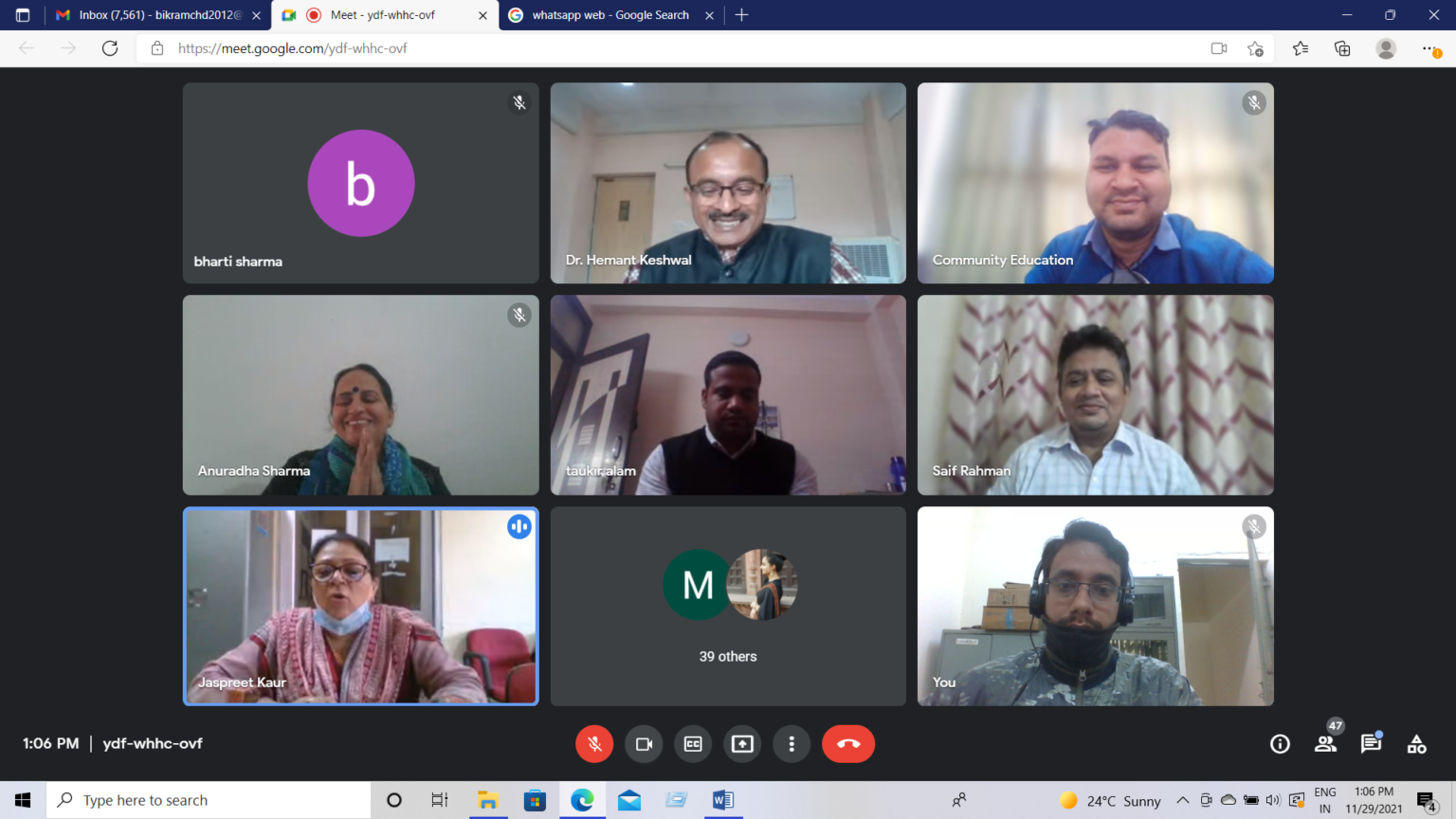Chandigarh November 29, 2021
Department of Community Education and Disability Studies (Panjab University, Chandigarh) organized a webinar today with the theme of ‘Intervention and Teaching Strategies for Children with Neuro-Development Disabilities’. In this webinar Dr. Hemant Keshwal (Assistant Professor, National Institute for the Empowerment of Persons with Intellectual Disabilities, (Divyajan) NIEPID, Regional Centre, Noida. U.P. India) was the Resource Person. Dr. Navleen Kaur (Chairperson) and Dr. Md. Saifur Rahman (Assistant Professor) introduced the resource person to the Participants. The participants were the students of B.Ed. Special Education semester I & III along with research scholars of the Department of Community Education and Disability Studies.
The webinar started with broadly four types of Neuro-Developmental disabilities i.e. Autism Spectrum Disorder (ASD), Attention Deficit Hyper-activity Disorder (ADHD), Learning Disability (LD) and Specific Learning Disorder (SLD). He was also presenting some illustrations in between the lecture for making lecture more interesting and interactive. He also explained what the symptoms to identify such disorders. In his lecture he emphasized more on early assessment and the role of parents and teachers become very important to deal with child’s problem. He also elaborated upon the various assessment tools that are available for identification of these problems. Further he also provide interventions that can help in solving the issues related to Neuro-Developmental Disabilities. He is of the opinion that technology can contribute in a greater way to help the child in learning process. At the end of the webinar there was open discussion, in which all participants were taking part actively. The participants were very curious to know about the new knowledge about the concepts of developmental disabilities. It was completely an interactive session. Participants seems very enthusiastic throughout the session. They suggested that department should organize more session on regular basis.
Assistant Professor Dr. Saifur Rehman gave vote of thanks. All faculty members of the department were also present in the webinar.




